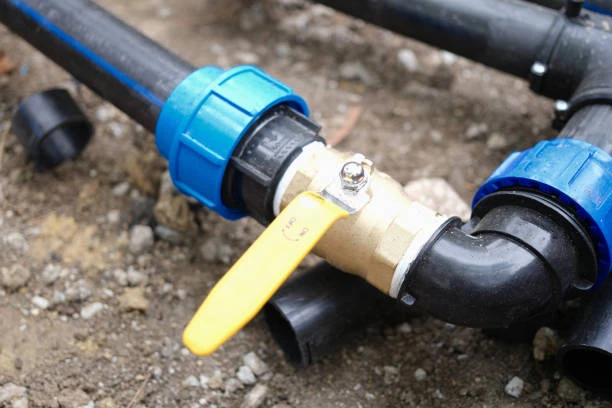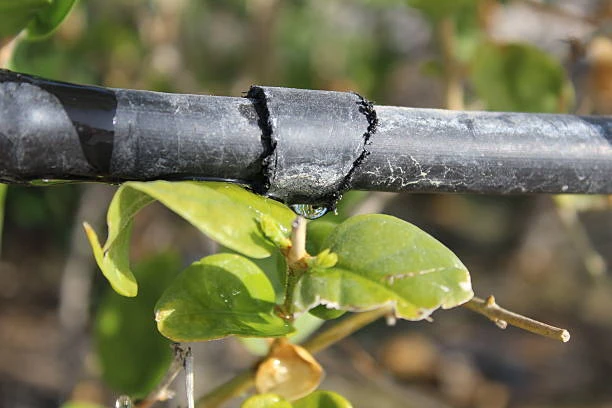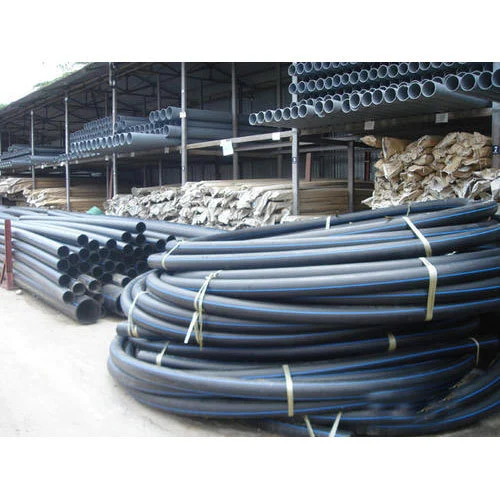The growing demand for infrastructure development in Kenya has attracted numerous investments in recent years. One of the most significant proposals currently on the table is from a firm planning to build a high-density polyethylene HDPE pipe factory in the country. This development is poise to have far-reaching impacts on the construction industry, local economy, and environmental sustainability. In this article, we will explore the importance of HDPE pipes, the benefits of establishing a local factory, and the implications for Kenya’s infrastructure.

Understanding HDPE Pipe
High-density polyethylene (HDPE) pipes are a crucial component of modern infrastructure. They are made from a strong and flexible thermoplastic polymer known for its high strength-to-density ratio. HDPE pipes are useful in various applications, including water supply, sewage disposal, and industrial processes.
Benefits of HDPE Pipe
- Durability: HDPE pipes are highly resistant to wear and tear, boasting a lifespan of over 50 years. They are not susceptible to corrosion or rust, making them ideal for long-term use.
- Flexibility: The inherent flexibility of HDPE pipes allows them to withstand ground movements and changes in temperature, reducing the risk of damage.
- Lightweight: Compared to traditional materials like steel and concrete, HDPE pipes are significantly lighter, making transportation and installation easier and more cost-effective.
- Chemical Resistance: HDPE pipes are resistant to a wide range of chemicals, which makes them suitable for various industrial applications.
- Environmental Benefits: As a recyclable material, HDPE contributes to sustainability efforts in construction and infrastructure projects.
The Need for a Local HDPE Pipe Factory in Kenya
Addressing Infrastructure Challenges
Kenya is experiencing rapid urbanization, leading to increased demand for reliable infrastructure. Water supply and sewage management are critical areas that require urgent attention. The proposed HDPE pipe factory would help address these challenges by providing locally manufactured pipes that meet the specific needs of the region.
Economic Growth and Job Creation
Establishing a factory in Kenya would not only meet local demand but also create job opportunities. The construction and operation of the factory would require a skilled workforce, contributing to local employment and economic growth. Additionally, a local manufacturing facility would reduce the reliance on imported pipes, enhancing the country’s self-sufficiency.
Reducing Costs
Importing HDPE pipes can be expensive due to shipping and logistics costs. By producing pipes locally, the proposed factory can significantly lower costs for contractors and municipalities. This cost-effectiveness will allow for more extensive infrastructure projects and better resource allocation.
Supporting Local Industries
The establishment of an HDPE pipe factory can have a ripple effect on local industries. Suppliers of raw materials, transportation services, and other ancillary services will benefit from the increased demand generated by the factory’s operations.
The Impact on HDPE pipe the Construction Industry
The construction industry in Kenya stands to gain significantly from the introduction of locally manufactured HDPE pipes. Here are some potential impacts:
1. Improved Supply Chain
With a local factory, the supply chain for HDPE pipes will become more efficient. Contractors will no longer have to deal with long lead times associated with imports, enabling faster project completion.
2. Enhanced Quality Control
Having a factory within the country allows for better oversight of manufacturing processes. This ensures that the pipes produced meet local standards and specifications, ultimately improving the quality of construction projects.
3. Increased Competition
The presence of a local manufacturer will foster competition among suppliers. This competition can lead to better pricing and innovation in products, benefiting contractors and end-users.
4. Availability of Custom Solutions
Local manufacturers can tailor their products to meet the unique needs of Kenyan infrastructure projects. Custom solutions can address specific challenges faced in the region, such as varying soil conditions or water quality.
Environmental Considerations
The establishment of an HDPE pipe factory also comes with environmental considerations. HDPE pipes are known for their sustainability, but the factory itself must also adhere to eco-friendly practices.
1. HDPE pipe Sustainable Manufacturing
The proposed factory should implement sustainable manufacturing practices. This includes using energy-efficient machinery, minimizing waste, and adopting recycling practices for production materials.
2. HDPE pipe Community Engagement
Engaging with local communities and stakeholders is crucial. The factory should ensure that its operations do not adversely impact the environment or local ecosystems. This includes monitoring emissions and waste management practices.
3. HDPE pipe Promoting Recycling Initiatives
An HDPE pipe factory can play a pivotal role in promoting recycling initiatives in Kenya. By using recycled HDPE in their manufacturing processes, the factory can reduce its environmental footprint and support circular economy principles.
Conclusion
The proposal to build an HDPE pipe factory in Kenya presents an exciting opportunity for the country. It aligns with the growing demand for infrastructure development and has the potential to significantly impact the local economy, job creation, and environmental sustainability. As the nation continues to urbanize, locally manufactured HDPE pipes can provide the necessary support for reliable water supply and sewage management systems.
By fostering a competitive and efficient manufacturing environment, Kenya can position itself as a leader in the HDPE pipe market within the region. The benefits of this factory will extend beyond immediate economic gains, contributing to long-term improvements in infrastructure and quality of life for its citizens.
FAQs
- What are HDPE pipe primarily used for? HDPE pipes are primarily useful for water supply, sewage disposal, and various industrial applications due to their durability and resistance to corrosion.
- How long do HDPE pipe last? HDPE pipes can last over 50 years, making them a durable choice for infrastructure projects.
- Are HDPE pipe environmentally friendly? Yes, HDPE pipes are recyclable and can contribute to sustainable construction practices.
- What are the economic benefits of a local HDPE pipe factory? A local factory can create jobs, reduce costs associated with imports, and support local industries.
- How does a local HDPE pipe factory enhance supply chain efficiency? A local factory reduces lead times for delivery, ensuring that contractors can complete projects more quickly and efficiently.
More Detailed Questions
What are the size ranges and pressure ratings of the pipes produced by the company?
The company manufactures pipes in a variety of sizes, starting from 15 mm and going up to 315 mm in diameter. As for pressure ratings, they offer options ranging from PN 6 to PN 25. This range ensures that users can find the right fit for both small-scale and larger, more demanding applications, accommodating varying pressure requirements effectively.
Where is the company’s manufacturing factory situated?
The company’s manufacturing facility is located in KHIM Business Park, situated in Athi River, Kenya.
In which markets does the company operate and export its products?
The company operates across the whole of Kenya and has expanded its presence by exporting its products to international markets.
What types of pipes and fittings does the company specialize in producing?
HDPE pipe
High-density polyethylene (HDPE) pipes are a crucial component of modern infrastructure. They are made from a strong and flexible thermoplastic polymer known for its high strength-to-density ratio. HDPE pipes are utilized in various applications, including water supply, sewage disposal, and industrial processes.
HDPE pipe
In addition to HDPE, the company also specializes in the production of unplasticized polyvinyl chloride (uPVC) pipes and fittings. This diverse range includes sizes from 15 mm to 315 mm, designed to meet various needs across different industries. The pressure ratings for these products range from PN 6 to PN 25, ensuring suitability for both high and low-pressure applications.
What are the different types of products included in the company’s production lineup?
High-density polyethylene (HDPE) pipes are a crucial component of modern infrastructure. They are made from a strong and flexible thermoplastic polymer known for its high strength-to-density ratio. HDPE pipes are utilized in various applications, including water supply, sewage disposal, and industrial processes.
In addition to HDPE pipes, the company’s production lineup includes a variety of essential products designed to meet diverse needs in construction and industrial sectors:
- Down Pipes: These are vital for efficient water drainage systems, directing rainwater from roofs to drainage areas.
- HDPE Fittings: Complementing HDPE pipes, these fittings ensure secure and leak-free connections in piping systems.
- uPVC Fittings: Known for their durability and cost-effectiveness, uPVC fittings are commonly useful in plumbing and irrigation systems.
- PVC Gutters and Fittings: Designed to manage rainwater runoff, these systems protect buildings from water damage and are easy to install.
- Electrical Conduits: These are essential for housing and protecting electrical wiring in buildings, ensuring safety and compliance with regulations.
- Valves: Critical for controlling the flow of liquids and gases, valves are useful across various industries to regulate pressure and flow.
Each product is crafted with precision and quality, catering to the evolving demands of today’s infrastructure projects. By offering a comprehensive range of products, the company positions itself as a versatile and reliable partner in construction and industrial applications.

















